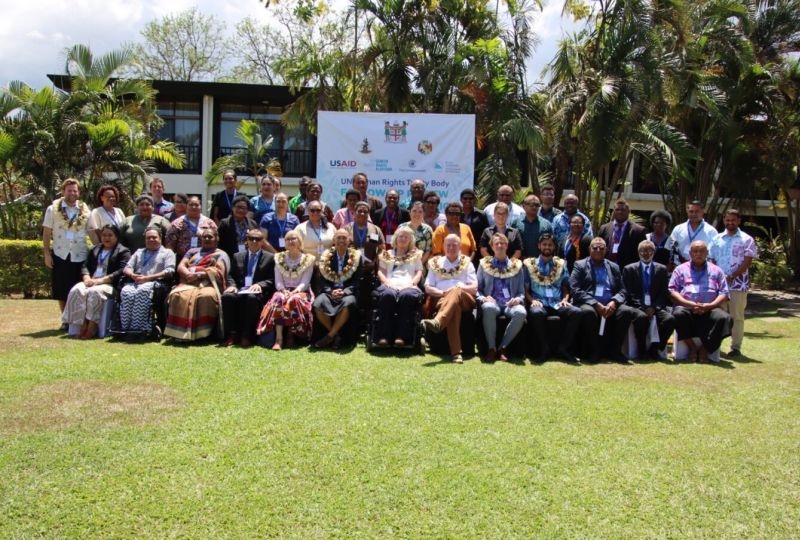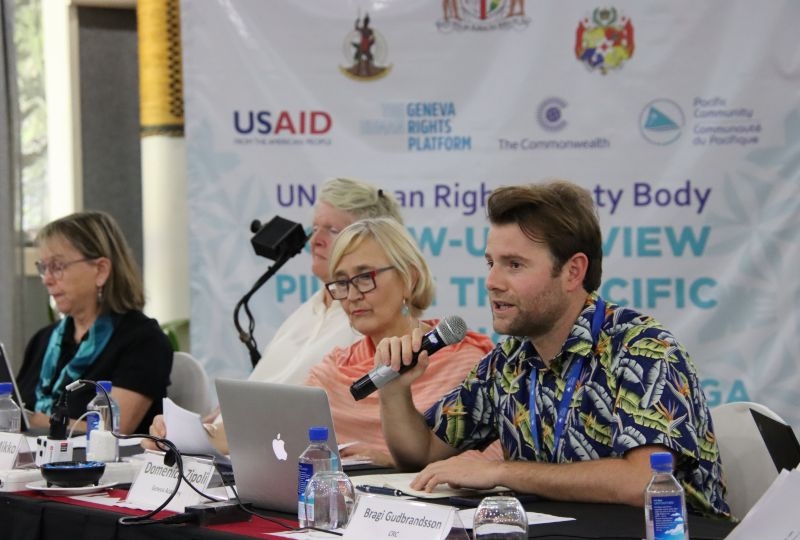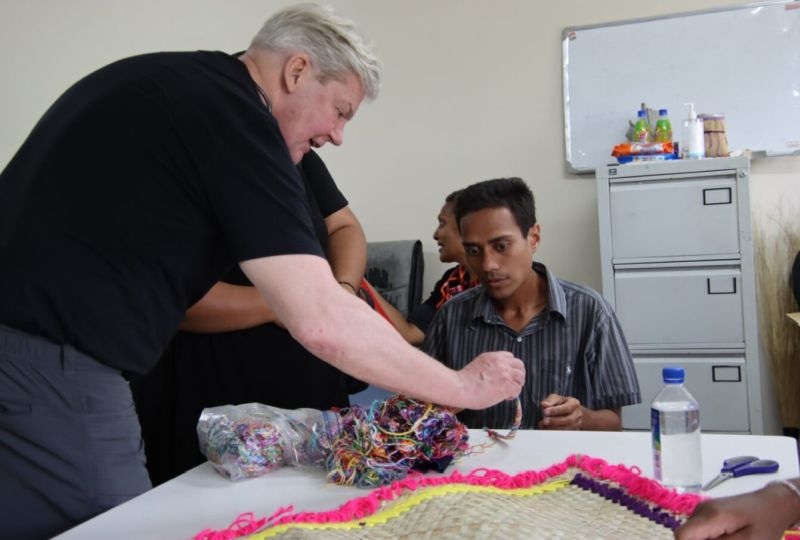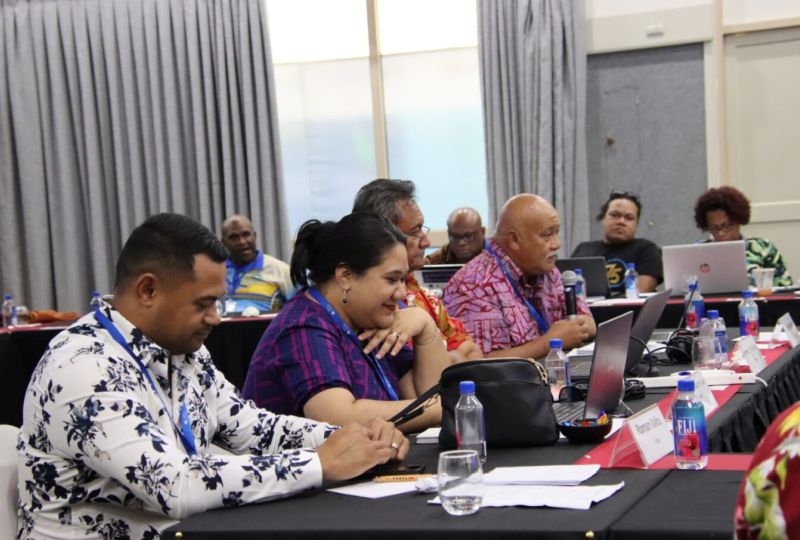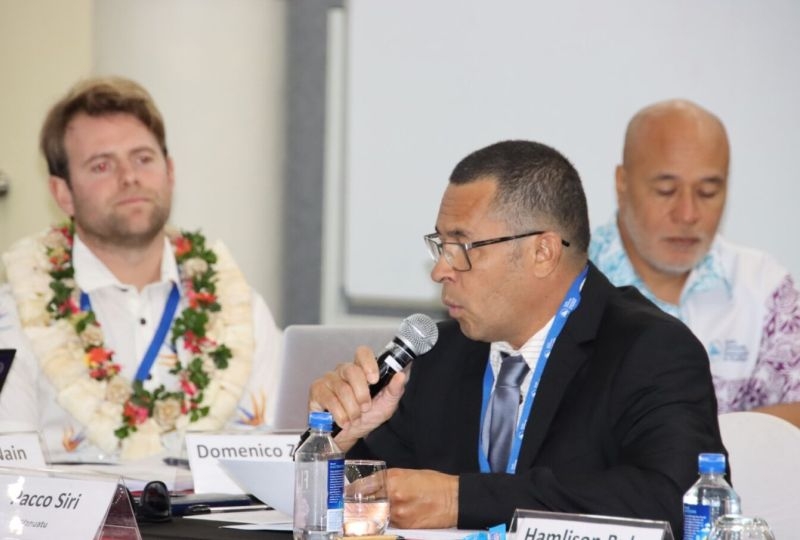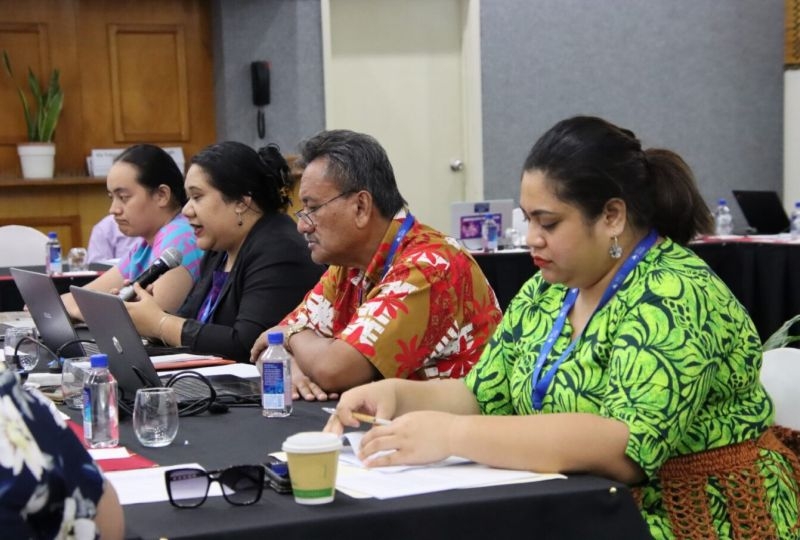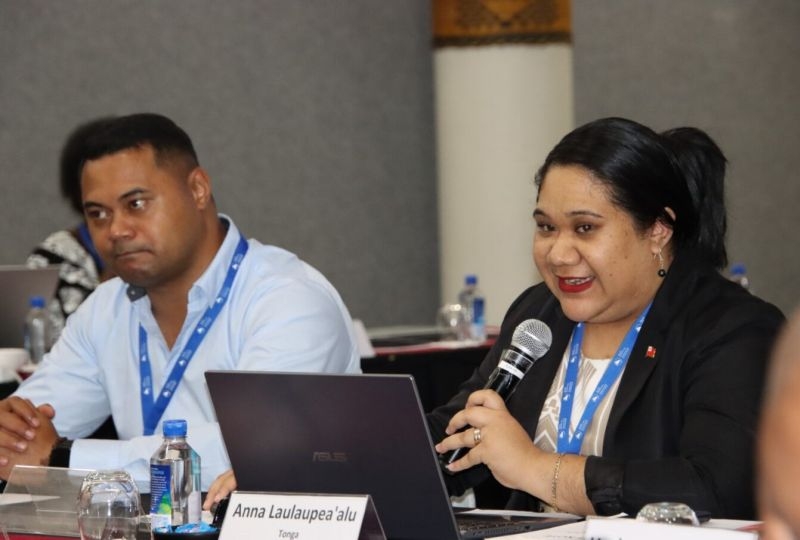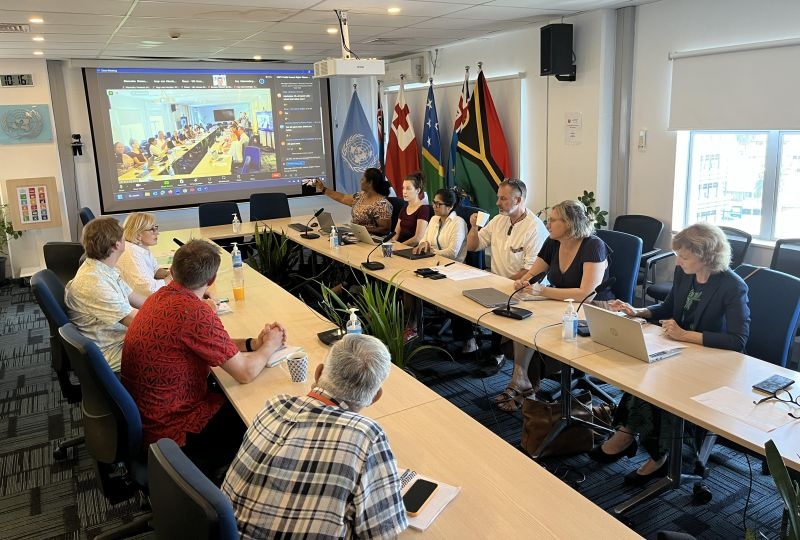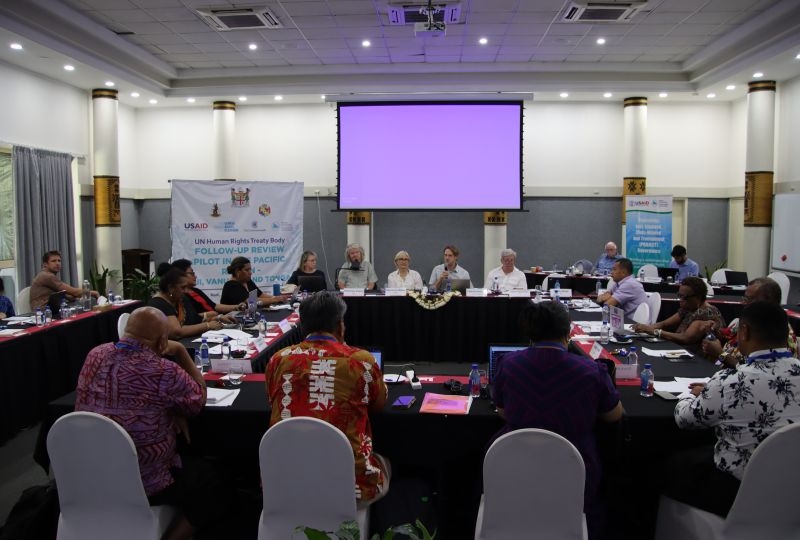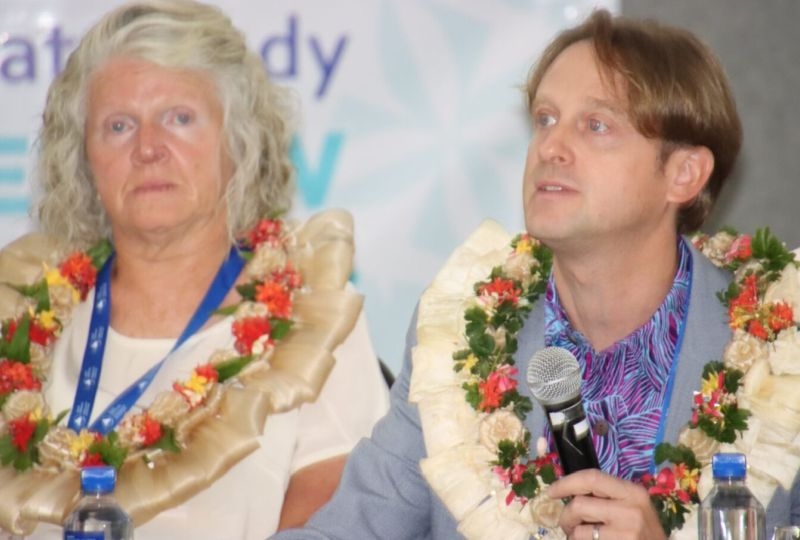A specific capacity-building segment concluded the pilot, an opportunity for government delegations, NHRI/Ombudspersons and CSO participants to pose questions to the TB delegation on implementation strategies and seek clarifications on what is expected by the Committees in terms of reporting and follow-up.
This event, structured similarly to the dialogues held in Geneva, offered national human rights actors an authentic experience of the state reporting process and a deeper understanding of the rights outlined in the conventions. Concurrently, it enabled the participating TB members to gain a practical grasp of the unique challenges faced in the implementation of these rights within the Pacific context.
‘There's a sense that so far we've all been working separately, lacking a unified effort. However, this chance has united us, aligning our understanding and goals. When we meet with representatives from Fiji and Vanuatu, we gain insights from their experiences. Despite their ratification of more treaties than us, it's clear that ratification is just the beginning, with a long multi-actor journey ahead towards full implementation’ says Roman Vaihu, Director of Investigations, Office of the Ombudsman of Tonga.
‘The UN should consider this regional approach. I could not stress this enough. The UN TB system should start considering organizing reviews in the Pacific, with Fiji potentially serving as the central hub. This would introduce constructive dynamics and address the high costs associated with sending delegations to Geneva for each report’ adds Jenny Tevi, Policy Advisor, Ministry of Justice and Community Services of Vanuatu.
‘The Human Rights Unit of the Commonwealth Secretariat is committed to supporting small states to engage effectively with Geneva-based human rights mechanisms and to strengthen their capacity, including with TBs. Pilot initiatives, such as regional follow-up reviews, not only increase visibility and deepen treaty bodies' understanding of the situation on the ground but also strengthen the engagement of States, national institutions and CSOs in the UN human rights framework’ recalls Yashasvi Nain, Human Rights Advisor, Commonwealth Secretariat.


